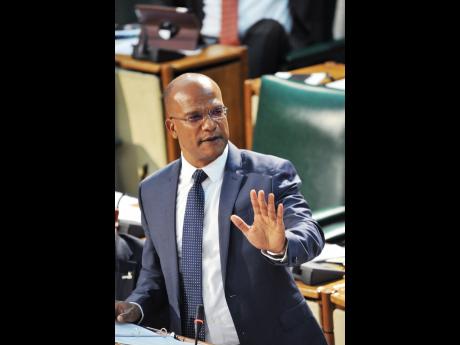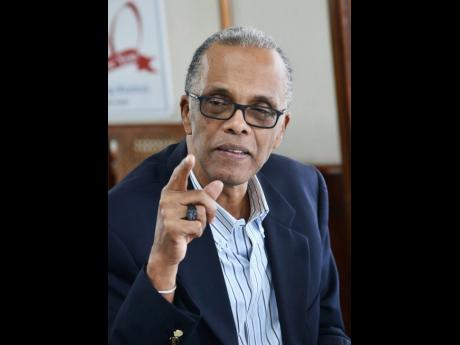Bunting says J'can Gov't pressed British for funds to build new prison
For years, the United Kingdom government had pressed its Jamaican counterpart to accept a prisoner-transfer deal, but Jamaica's current administration says it only acquiesced on a firm commitment from the British that it would provide a substantial grant towards the facility.
National Security Minister Peter Bunting, who made the disclosure yesterday, said it was Jamaica's insistence that its British counterpart provide tangible support for a new prison that resulted in a commitment amounting to £25 million to build the facility.
He noted that Jamaica had articulated the need and intention to build a new prison from the mid-1990s when K.D. Knight was national security and justice minister.
Bunting told The Gleaner that successive governments had avoided dealing with the issue, even though the country was operating prisons in violation of international human-rights standards.
"This is the first administration with the courage and commitment to address the issue," he said, adding that this move is driven first and foremost by human-rights concern for the more than 2,000 prisoners at the Tower Street Adult Correctional Centre and the St Catherine Adult Correctional Centre.
But tough-talking attorney-at-law Dr Paul Ashley is of the view that "Wherever you do the crime, you spend the time."
In a Gleaner interview, Ashley called on the Government to make public the memorandum of understanding setting out the details of the proposed prisoner-transfer arrangement, so that there can be an informed national debate on the issue.
"All the details of the memorandum of understanding between the two governments must be made public. The Ministry of National Security can publish it on their website, and then we can have some debate, with clarification and understanding of the issue," Ashley contended.
With the prisoner-transfer issue already triggering national debate, Ashley said the sending of so-called Jamaican prisoners from the UK to Jamaica would have social implications.
"After the inmates have exhausted their time, they are now set free on the Jamaican society with no money, with no job prospects, because people who have skills in the Jamaican economy today, who have not had the experience of the 'Cameron' correctional facility, are finding it very difficult to find jobs," he pointed out. He said there would be a basic discrimination against those who were detained at Her Majesty's pleasure at the facility.
The attorney-at-law also raised the question of whether it was appropriate for the UK to ship prisoners back to Jamaica when those persons may have entered Britain at a tender age and socialised within the context of the British society. "The British system is responsible for the product they are turning out. Why should they now be carted off to their motherland and forced to remain there? They are British criminals, not Jamaican criminals," he said.
"It seems to me that if they (British) wanted to be sincere, they could have a genuine offshore facility where they stand the total cost of the operation, manning it, and everything," he argued, adding that the "Jamaican taxpayer at this time cannot find 60 per cent of the cost of the facility".
He insisted that if the British want to make a very serious statement, they should stand the cost of funding a very modern facility that won't be a correctional centre but a resocialisation centre that equipped people with skills.


